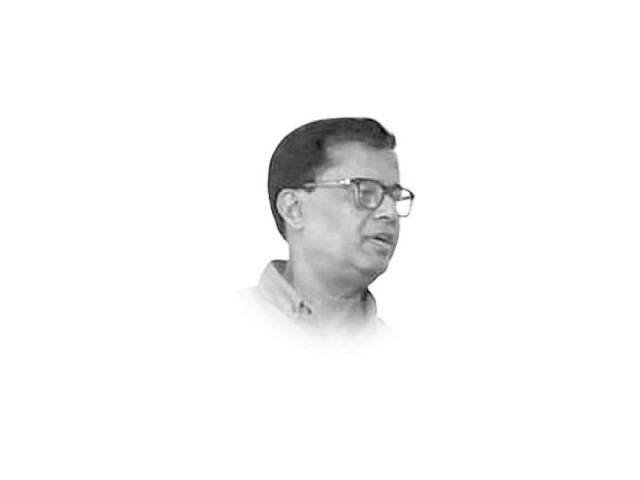Pakistan's evolving climate journalism scene
This marks a considerable change from just a decade ago

Pakistan is experiencing a significant shift in its journalism landscape, particularly concerning climate reporting. It's now rare to find a major media house without at least one dedicated, full-time climate reporter. While these reporters are often junior journalists or less experienced than their senior counterparts, both English and local language media outlets are making this commitment.
This marks a considerable change from just a decade ago, when no such dedicated role existed. Previously, environmental incidents were typically covered by local bodies or health reporters as an additional assignment.
Despite these challenges, Pakistan boasts some exceptionally brilliant environmental reporters in both print and electronic media. Their success stories demonstrate that even without extensive institutional support, it's possible to become a leading voice in environmental journalism in Pakistan.
It's quite surprising that a prominent private university located in Karachi's Korangi Creek area includes environmental journalism as an optional subject. In its recently concluded semester, a total of 23 media studies students enrolled in the course and showed considerable enthusiasm. Interestingly, the majority of these students had a completely different perspective on the subject after finishing it. They confessed that their initial understanding was that environmental journalism was solely about activities like planting trees and collecting garbage. This highlights a gap in the education of aspiring climate journalists, often resulting in media graduates shying away from covering environmental beats in their careers because of their unfamiliarity with the subject.
One of Karachi's oldest public universities has a mass communication department where the idea of introducing climate journalism as an optional subject hasn't yet taken hold. However, the department is fortunate to have a few faculty members who are very enthusiastic about the topic. They actively seek out opportunities to help their students learn about climate journalism, whether through awareness programmes or engagement in community projects.
Despite these efforts, a significant hurdle for students is the lack of formal education in climate journalism on their academic transcripts. This absence could hinder their ability to secure their first jobs as climate reporters. This situation sends a clear message to university curriculum developers: why are they still overlooking a subject that has become so vital in today's world?
A grassroots effort by climate education activists in Karachi has led to a 12-week volunteer climate journalism education programme. This initiative is providing complimentary training to approximately 45 working journalists nationwide, operating solely on a volunteer basis without any external funding or sponsorship. The diverse group of participants, hailing from both print and electronic media with varying levels of experience, is clearly dedicated, indicating the participants' awareness of the significance of the subject. While they will undoubtedly gain a strong understanding of climate issues, a challenge remains: the programme's voluntary nature means there's no official certification for their learning. Presently, Pakistan lacks an organisation that formally recognises or endorses such community-driven initiatives that foster climate education in all aspects of life.
Throughout the rest of the country, the situation is the same: no university or educational institution has introduced any climate-related subject into their curriculum. They only offer standard environmental sciences degree programmes, where climate change is taught as a compulsory subject. This is the primary reason why, despite being highly vulnerable to climate change, most regions of Pakistan aren't professionally reporting on their exposure and sensitivity to this new human-induced natural phenomenon. Ample proof of this is that reporting from every part of the country is merely reactive climate journalism, focusing solely on reporting the loss of life and property after a climate disaster.
There's a significant lack of proactive climate journalism. Only a handful of journalists, primarily from English-language media, or perhaps one or two senior feature writers from Urdu or Sindhi outlets, possess the expertise to report on climate change proactively.
Recently, a media organisation assigned a crime reporter to an important environmental issue. Unfortunately, he approached the topic as a crime story, which led to an offensive and inappropriate investigation.
A well-trained climate reporter, on the other hand, fully grasps the challenges and hurdles involved in gathering data in this field. They diligently pursue every avenue to uncover even basic information. This is largely because the climate sector is still evolving, with unclear roles for many entities, making it common for responsibility to be passed around.
Who will take the initiative to introduce climate or environmental journalism into the curricula of media education in Pakistan? That's the lingering question. With the 18th constitutional amendment, a federal-level effort isn't possible, as each province now has the discretion to include it or not. Therefore, the responsibility falls on those who understand its significance to advocate for it. Within their spheres of influence, they must highlight the importance of proactive climate journalism to enhance our preparedness and improve our efforts in climate change mitigation and adaptation.
To effectively address the urgent need for robust climate reporting, institutions with proven expertise in climate journalism must simultaneously introduce extensive training programmes for working journalists. These programmes should not be paid fellowships that prioritise comfort and luxury to entice participants, often at the expense of substantive skill development.
Instead, the focus should be on providing comprehensive training in all technical and journalistic aspects of climate reporting. These programmes should be designed for working journalists who possess a genuine interest in the field and are driven by a desire to master this crucial and promising area of media coverage, rather than simply enjoying the perks of a fellowship.















COMMENTS
Comments are moderated and generally will be posted if they are on-topic and not abusive.
For more information, please see our Comments FAQ